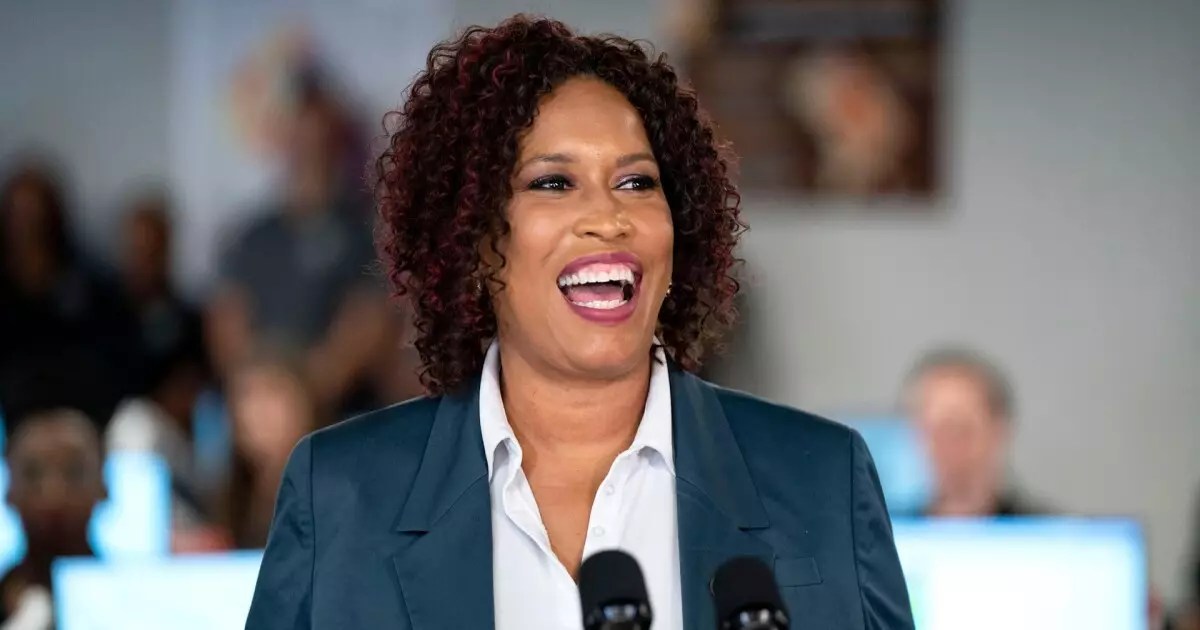As the District of Columbia navigates the treacherous financial landscape shaped by recent congressional actions, uncertainty governs the city’s fiscal outlook. Mayor Muriel Bowser’s pressing concerns about an impasse in Congress over budgetary resolutions encapsulate the frustration and anxiety of a city that relies heavily on federal funding. A continuing resolution that restricts D.C. from tapping into the anticipated 2025 budget has sown discord and chaos, placing the city in a precarious position with a staggering potential budget shortfall of $1.1 billion for crucial services. It’s becoming increasingly clear that the signatures of local elected officials are not enough to bridge the funding chasm created by negotiations in the nation’s capital.
The Mayor’s urgent calls for Congressional representatives to prioritize fixing this financial gap resonate through the halls of local government, illustrating a complicated relationship marked by dependency on the goodwill of federal lawmakers. It echoes a larger issue at play: the wrestling match over governance between a city that is not a state and a federal government that dictates financial terms without full accountability.
The Toll of Federal Workforce Reductions
D.C.’s economic resiliency is wavering, largely due to harsh cuts directed at the federal workforce — a lifeblood for many residents and small businesses. Bowser’s grim projection of 40,000 job losses within four years is not just a number; it’s a forecast that could decimate local businesses and worsen economic disparities. What is often overlooked in the grand political discourse is how these cuts manifest on the streets of D.C.: shuttered cafes and empty storefronts symbolize the fragility of the city’s economy, reminding us that job losses lead to less consumer spending and diminished vitality.
This austerity in federal spending coincides with a confusing web of budgetary limitations that restrict the city’s capacity to remain financially stable. The mayor’s struggle to present the 2026 budget showcases the dysfunctional relationship between local needs and federal oversight, as city leaders are thwarted by decisions that linger in limbo. This budget paralysis highlights a fundamental flaw in governance, where local obligations are dictated by a federal framework that isn’t always aligned with the realities of urban life.
Reputation and Ratings in Jeopardy
Beyond immediate financial woes, the reputation of Washington, D.C. as a competitive urban hub is on the line. The city has enjoyed solid credit ratings (AA+ or above) from all primary ratings agencies, but Fitch Ratings adding a negative watch puts a cloud of doubt over the future. This uncertainty could lead to higher borrowing costs or deter investment, further complicating an already tense economic landscape. Moody’s deliberation over a potential downgrade serves as an additional stark warning that the city’s financial operations are under scrutiny not just regionally, but nationally.
With the looming threat of reduced ratings, the stakes for effective governance have never been higher. Citizens expect their local leaders to manage public resources wisely within the constraints mandated by federal oversight. However, given the current trajectory, it seems they may be let down. In an era where economic recovery hinges on smart budgeting and innovative local governance, the inability to adapt could jeopardize the city’s standing.
Public Safety and Urban Renewal: A Dual Challenge
Adding to the pressures of financial uncertainty is the critical issue of public safety and urban aesthetics. While the President’s formation of a task force to enhance D.C.’s appeal through crime reduction initiatives and beautification projects may reflect well-intended action, the reality on the ground is much bleaker. The mayor’s frustrations over overflowing trash cans during tourist seasons, compounded by limited resources for park maintenance and law enforcement, highlight systemic issues that can’t be easily brushed aside with policy proclamations.
Every sector—from tourism to retail—is interlinked, and neglecting the aesthetics of the city can deter visitors. Initiatives aimed at cleaning urban spaces and elevating public safety are not just about beautification; they are crucial for economic sustainability. Without investment in these areas, D.C. risks losing its competitive edge, presenting a less desirable picture for those who might otherwise invest or visit.
We are at a critical juncture in Washington, D.C., where the intersection between local governance and federal intervention shapes the very future of the city. As the Mayor rallies her forces and implores Congress to act decisively, the watchful eyes of residents and stakeholders remain fixed on the unfolding saga of budget remedies and economic sustenance. The call for accountability is urgent; the community is demanding solutions, not just apologies.


Leave a Reply